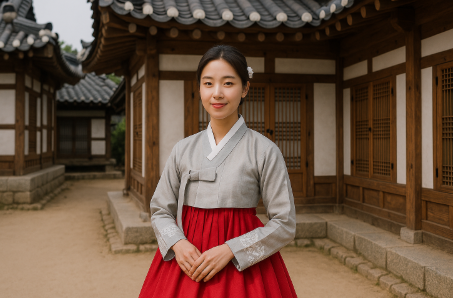South Korea, known for its vibrant culture and rich history, offers a plethora of literary works that provide a deep insight into its society and traditions. Korean literature, although rooted in a long history, has gained international recognition in recent years due to its unique storytelling and thematic diversity. This article explores the significance and influence of Korean literature on global readers, along with some must-read authors and books.
The Rich Tradition of Korean Literature
Korean literature has a long-standing tradition that dates back to ancient times. Initially, it was deeply influenced by Chinese literature and classical Chinese was the primary medium for scholarly and literary works. Over time, Korean writers began to develop their distinct styles and narratives that reflected their cultural and social realities. From the philosophical musings of Confucian scholars to the poetic elegance of sijo and gasa, Korean literature has constantly evolved while preserving its core values.
Modern Korean Literature’s International Impact
In recent decades, modern Korean writers have made significant contributions to the world of literature, gaining international acclaim and drawing attention to Korean narratives. Notable authors like Han Kang and Bae Suah have won prestigious literary awards, introducing the world to the complexities and beauty of Korean culture. The translation of Korean works into various languages has further amplified their reach, allowing global readers to explore and appreciate Korean stories and themes.
Influential Korean Authors and Their Works
Several Korean authors have left an indelible mark on both Korean and world literature. Among them, Kim Young-ha, known for his novels that explore themes of isolation and identity, and Shin Kyung-sook, whose work Please Look After Mom has touched readers worldwide, stand out. These authors provide a glimpse into the everyday lives of Koreans, highlighting universal themes through a distinctly Korean lens.
Thematic Diversity in Korean Literary Works
Korean literature is celebrated for its thematic diversity, covering a wide range of topics such as family dynamics, historical events, and existential inquiries. The deep exploration of human emotions and societal issues allows readers to connect on a personal level. Whether it’s dealing with the pain of a divided nation or the simple joys of everyday life, Korean literature offers something meaningful for everyone.
Korean Literature’s Role in Cultural Exchange
By engaging with Korean literary works, readers across the globe partake in a cultural exchange that fosters understanding and appreciation of Korean heritage and perspectives. This cultural dialogue enriches the global literary landscape, providing a platform for voices that offer new insights and narratives. As more people around the world delve into Korean books, they contribute to a more interconnected and literate society.
| Author | Notable Works | Recognitions |
|---|---|---|
| Han Kang | The Vegetarian, Human Acts | Man Booker International Prize |
| Kim Young-ha | Your Republic Is Calling You, I Have the Right to Destroy Myself | Henri-Queffélec Literary Prize |
| Shin Kyung-sook | Please Look After Mom | Man Asian Literary Prize |
FAQ
Q1: What themes are prevalent in Korean literature?
A1: Korean literature often explores themes of identity, family, historical conflict, and human emotion.
Q2: Why is Korean literature gaining global popularity?
A2: The unique storytelling, cultural insights, and the availability of translations have made Korean literature appealing to a global audience.
Q3: Which Korean author should I start with?
A3: Beginners can start with Han Kang’s The Vegetarian or Shin Kyung-sook’s Please Look After Mom for a profound literary experience.
Summary
✅ Korean literature has evolved from ancient traditions to modern narratives.
✅ It offers thematic diversity, appealing to a wide range of readers globally.
✅ Translation efforts have enhanced its international impact.
✅ Authors like Han Kang and Kim Young-ha are instrumental in its global reach.
Hashtags: #KoreanLiterature #HanKang #KimYoungha #ShinKyungsook #ModernLiterature #KoreanAuthors #CulturalExchange #Sijo #Gasa #LiteraryAwards #Translation #GlobalReaders #IdentityThemes #FamilyDynamics #HistoricalNarratives #KoreanCulture #BookRecommendations #InternationalReaders #ManBookerPrize #LiteraryTradition #CulturalHeritage #GreatReads #KoreanNarratives #MustReadBooks #InfluentialAuthors #KoreanHistory #LiteraryDiversity #GlobalLiterature #CultivateReading #FosteringUnderstanding


https://shorturl.fm/hPZwP
https://shorturl.fm/KlBpS
https://shorturl.fm/jQVRc
https://shorturl.fm/Z8uW3
https://shorturl.fm/9zv4b
https://shorturl.fm/5tg8v
https://shorturl.fm/dAkSD
https://shorturl.fm/srl7A
https://shorturl.fm/LGNTZ
https://shorturl.fm/zhAOq
https://shorturl.fm/Tx7Lk